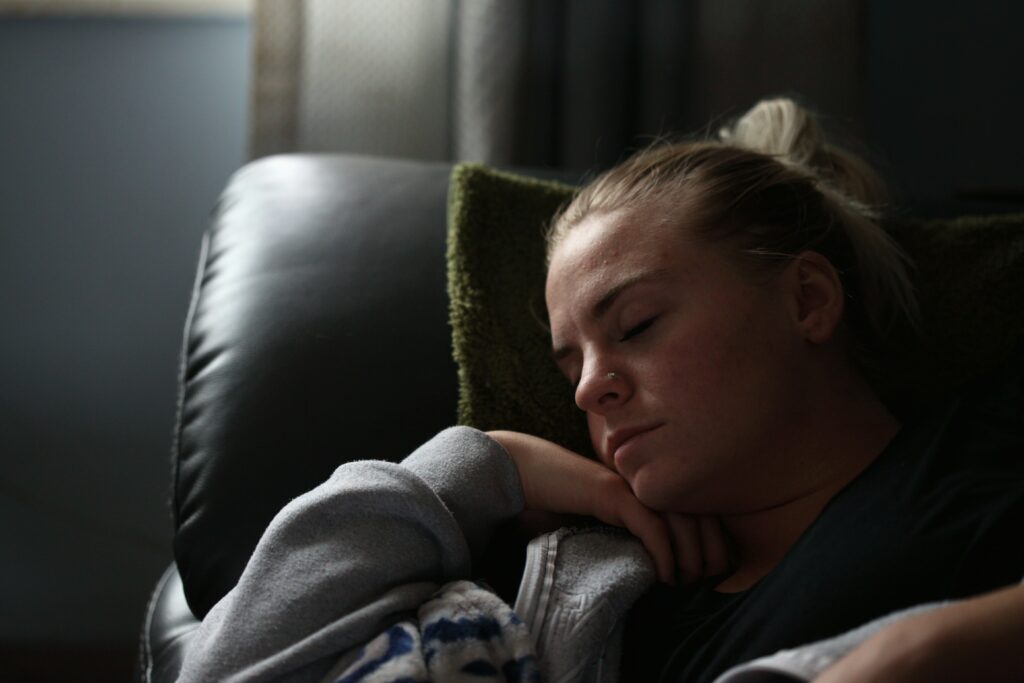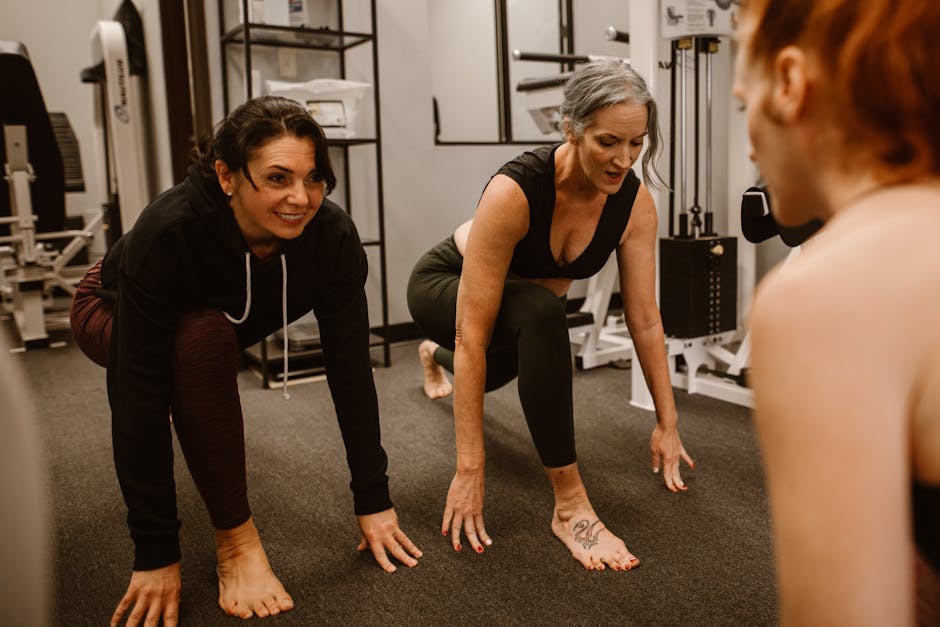How Hormonal Changes Affect Women’s Sleep
Hormonal fluctuations play a significant role in shaping women’s sleep patterns. Across different life stages—from menstruation to pregnancy to menopause—changes in hormone levels do more than influence mood and energy. They directly impact the ability to fall asleep, stay asleep, and feel well-rested.
Shifting Sleep Cycles
Sleep patterns don’t remain static, especially for women. Key hormonal events throughout life can alter the structure and quality of rest.
- Menstrual cycles: Women may experience disrupted sleep in the days leading up to menstruation due to hormonal shifts.
- Pregnancy: Frequent nighttime awakenings and discomfort in later trimesters make deep sleep harder to maintain.
- Menopause: Hot flashes, night sweats, and dropping hormone levels during perimenopause and menopause are linked to chronic sleep interruptions.
Why Women Report More Sleep Disruptions
Studies consistently show that women are more likely than men to struggle with sleep disorders. Factors contributing to this include:
- Fluctuating hormone levels
- Higher prevalence of anxiety and mood disorders tied to reproductive changes
- Physical discomfort and temperature sensitivity linked to hormonal shifts
Estrogen and Progesterone: The Sleep Hormones
Two key hormones—estrogen and progesterone—play central roles in regulating sleep:
- Estrogen supports REM sleep and helps maintain body temperature at night. Low levels are linked to difficulty staying asleep.
- Progesterone has a sedative effect, promoting slow-wave sleep. Falling progesterone levels in menopause often reduce sleep depth and continuity.
Continue Exploring the Topic
For more insights on how hormonal changes influence mental and emotional well-being, visit:
How Hormonal Cycles Affect Mental Health in Women
Sleep isn’t a luxury. It’s core maintenance. You can hack your diet, stack supplements, or double your workouts—but if you’re running on empty, everything else breaks down. Restorative sleep is when muscles rebuild, the brain clears itself out, and your stress response resets. Ignore it long enough, and no amount of willpower can carry you.
And here’s the kicker—women’s sleep needs aren’t identical to men’s. Hormonal shifts tied to cycles, pregnancy, perimenopause, and menopause all play a role in how well women sleep—and how much sleep women truly need. One-size-fits-all hacks or general advice often miss that entirely. If you’re following a sleep guide built for an average male body, you might be setting yourself up to fail.
Better sleep isn’t about chasing perfection. It’s about understanding what your body actually needs—and giving it a fighting chance to reset. That’s step one, not an optional step later.
Sleep isn’t optional. It’s the foundation for mental clarity, emotional regulation, and daily decision-making. And when it goes missing, the fallout is clear. Research shows that even a single night of poor sleep can spike anxiety levels. Stretch that out over time and depression risks increase, memory gets scattered, and focus takes a nosedive. Vloggers, creators, and anyone functioning in high-paced digital spaces feel this hard.
Here’s where REM sleep enters the picture. It acts like an overnight reset button for the brain. During this stage, the mind processes emotions, files experiences, and untangles stress knots. Long-term resilience isn’t built in the chaos of the day—it’s built at night, when your brain has space to sort itself out.
And those worry-filled late-night hours? More common and intense in women. Hormonal cycles, heightened stress response, and societal pressures all play a role. That 2 AM mental spiral isn’t just in your head—it’s backed by biology. Sleep health needs to be part of the conversation, especially for women navigating both personal and professional mental loads.
Stress isn’t just a mental weight—it hits your body hard too. Cortisol, the hormone your brain pumps when you’re wired and overwhelmed, doesn’t switch off just because it’s bedtime. The result? Sleepless nights. Your heart rate stays elevated, your mind races, and deep sleep becomes rare. It’s like running a marathon while trying to nap.
Left unchecked, stress creeps into your sleep cycle night after night. That’s when burnout shows up. You’re forgetful, irritable, emotionally flat. Productivity drops. Small tasks feel heavy. And rest—the thing that should help—starts to feel impossible.
Breaking that loop starts small. A wind-down routine counts more than you think. Avoid screens late at night. Try breathing techniques that actually slow your system down. Keep the bedroom cool and distraction-free. Even five minutes of journaling or a quick tai chi session can nudge your body toward better rest.
Recovery doesn’t require a complete lifestyle reboot. But it does demand awareness. Learn to spot when you’re in the stress-sleep spiral, and take deliberate steps to climb out. Night by night, it adds up.
Rethinking Rest: Power Over Pressure
The Hustle Mindset Hurts More Than It Helps
For many women, the hustle mindset isn’t just a habit — it’s a cultural expectation. Society often measures success by how much one produces, how busy one stays, and how much they sacrifice to push forward. But this high-pressure lifestyle comes with a cost.
- Chronic stress increases the risk of burnout, anxiety, and illness
- Overworking is often celebrated more than rest or self-care
- Women, especially, are praised for multitasking but rarely encouraged to pause
Sleep as a Wellness Strategy
Sleep is more than rest — it’s proactive health care. Yet it’s one of the first things sacrificed in a hustle-driven culture. Viewing sleep as a weakness or a luxury is a mindset that needs to shift.
- Quality sleep supports mental clarity, emotional balance, and hormone regulation
- Rested bodies recover faster and perform better
- Making sleep a priority is an act of long-term self-preservation
Rest Is Strength, Not a Setback
True rest is not laziness. It’s active resistance against a system that glorifies overwork. When women rest, reflect, and recharge, they regain control of their energy and focus.
- Choosing rest is choosing health and sustainability
- Productivity improves when it’s intentional, not constant
- Resting makes room for resilience, creativity, and leadership
In 2024 and beyond, redefining rest isn’t optional — it’s essential.
Getting better sleep starts with the space you’re sleeping in. Total darkness helps cue your brain to shut down. Blackout curtains are your friend. If noise is an issue, try earplugs or a white noise machine. Room temperature matters too — neither freezing nor stuffy. The sweet spot is usually around 65°F.
Then there’s the wind-down. If you’re scrolling in bed, you’re doing it wrong. Screen-free routines are underrated. A book, light stretching, or even ten minutes of quiet goes further than you think. The goal is to not slam your brain with light or noise right before sleep.
Finally, don’t overlook how your day sets up your night. A walk outside. Cutting caffeine after noon. Eating dinner a little earlier. It’s not magic. It’s maintenance. And it works.
Better sleep starts way before your head hits the pillow. Make your environment work for you, wind down like you mean it, and treat sleep like fuel, not an afterthought.
Why Prioritizing Sleep Should Be Non-Negotiable
We talk a lot about hustle, but too often glorify burnout. That’s a mistake. Sleep is not a luxury or a side-note — it’s fuel. Consistent, quality rest sharpens your thinking, strengthens immune function, and resets emotional resilience. Creators pushing content on fumes risk more than low energy. They jeopardize clarity, creativity, and long-term output.
Small wins matter. Setting an actual bedtime. Keeping devices out of the bed. Cutting caffeine after noon. These daily choices add up. They don’t just protect your health — they make you better at what you do. When you’re well-rested, your edits are tighter, your ideas are clearer, and your reactions on camera are real.
Empowerment doesn’t always look like hustle. Sometimes, it looks like logging off. Sleep is the base layer of wellness. If you want to show up every day with ideas that stick, start with rest that heals.




